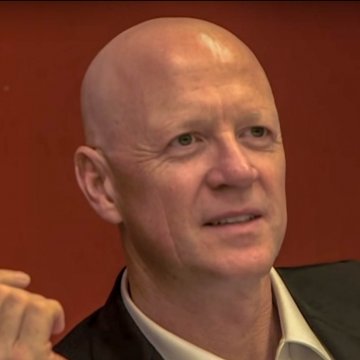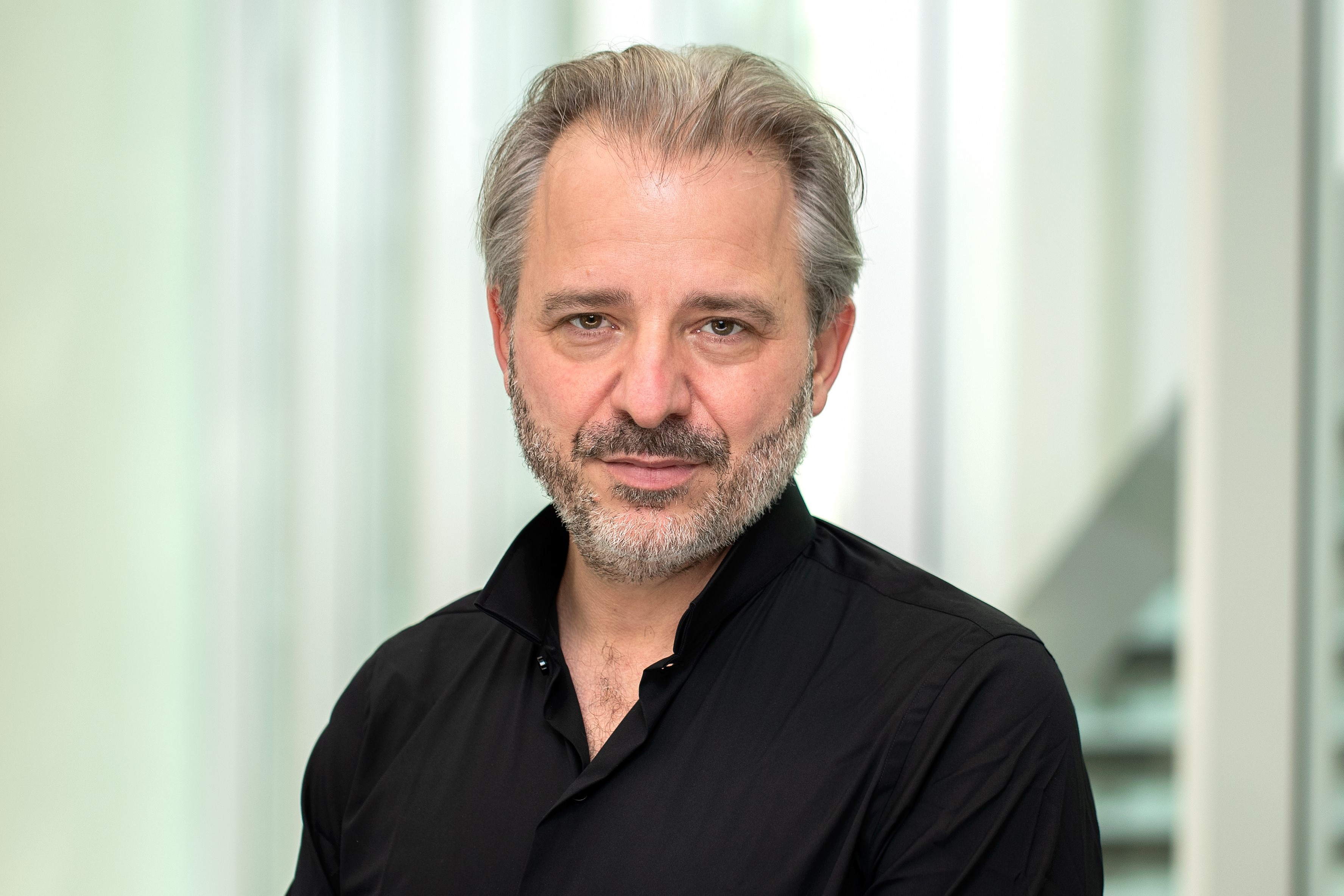The Normative Foundations of the Market
Academic Organizers and presenters:
|
Hanoch Dagan |
The Buchmann Faculty of Law, Tel Aviv University |
|---|---|
|
|
Hanoch Dagan is the Stewart and Judy Colton Professor of Legal Theory and Innovation and the Director of the Edmond J. Safra Center for Ethics at Tel-Aviv University. Professor Dagan is a former Dean of Tel Aviv University Faculty of Law and also served as the founding director of the Zvi Meitar Center for Advanced Legal Studies, the director of The Cegla Center for Interdisciplinary Research of the Law, and the Editor in Chief of Theoretical Inquiries in Law. Among his many publications are over 90 articles in major law reviews and journals, such as Yale Law Journal, Columbia Law Review, New York University Law Review and more. Professor Dagan has also written seven books, including Property: Values and Institutions (Oxford University Press, 2011), Reconstructing American Legal Realism & Rethinking Private Law Theory (Oxford University Press, 2013), and The Choice Theory of Contracts (with Michael A. Heller) (Cambridge University Press, 2017). His new book – A Liberal Theory of Property – is forthcoming this year with Cambridge University Press. Professor Dagan has been a visiting professor at Yale, Columbia, Michigan, Cornell, UCLA, and Toronto. Dagan delivered keynote speeches and endowed lectures at Singapore, Alabama, Toronto, Queensland, Cape Town, Monash (Melbourne), and Oxford. He is a member of the American Law Institute and the International Academy of Comparative Law. Dagan obtained his LL.M. and J.S.D. from Yale Law School after receiving his LL.B., summa cum laude, from Tel Aviv University. |
|
Amy Sepinwall |
Wharton School of the University of Pennsylvania |
|---|---|
|
|
Amy Sepinwall is a tenured associate professor in the Department of Legal Studies and Business Ethics at the Wharton School of the University of Pennsylvania. Her research proceeds along two streams. The first is connected to responsibility for corporate and financial wrongdoing, and the second addresses constitutional rights as they arise in commercial contexts. Her work has appeared in The Chicago Law Review, Washington University Law Review, Journal of Corporation Law, and Business Ethics Quarterly, in addition to other forums. She holds a Ph.D. in Philosophy from Georgetown University and a law degree from the Yale Law School. Prior to joining the faculty at Wharton, she served as an adjunct professor at Georgetown University Law Center and a law clerk for the Honorable Louis H. Pollak of the Eastern District of Pennsylvania. |
Participants:
|
Sandrine Blanc |
INSEEC School of Business and Economics |
|---|---|
|
|
Sandrine Blanc is an associate professor of business ethics at INSEEC Grande Ecole. She is an associate member of the Hoover Chair of Economic and Social Ethics at Louvain University (UCL). Her main research areas are business ethics and political philosophy, with a focus on normative issues related to business and contemporary capitalism. She is particularly interested in the implications of the question of social justice for business. Blanc’s contributions include articles in Economics and Philosophy, Business Ethics Quarterly, Journal of Business Ethics, Review of Economic Philosophy and Revue Française de Gestion. |
|
Thomas Christiano |
Philosophy, Univversity of Arizona |
|---|---|
|
|
Thomas Christiano is a philosopher at the University of Arizona. He writes books and articles on moral and political philosophy and regularly teaches both graduate and undergraduate courses. Christiano's current research is mainly in moral and political philosophy with emphases on democratic theory, distributive justice and global justice. |
|
Chiara Cordelli |
Political Science, University of Chicago |
|---|---|
|
|
Chiara Cordelli is an associate professor in the Department of Political Science at the University of Chicago. Her main areas of research are social and political philosophy, with a particular focus on theories of distributive justice, political legitimacy, normative defenses of the state, and the public/private distinction in liberal theory. She is the author of The Privatized State (Princeton University Press, 2020), which was awarded the 2021 ECPR political theory prize for best first book in political theory. She is also the co-editor of, and a contributor to, Philanthropy in Democratic Societies (University of Chicago Press, 2016). Cordelli’s articles and contributions to symposia appeared in the American Political Science Review, Ethics, Journal of Political Philosophy, Journal of Politics, Political Theory, Political Studies, British Journal of Political Science, Critical Review of Social and Political Philosophy, and Political Studies Review, as well as in several edited volumes, including NOMOS. One of her articles, “Justice as Fairness and Relational Resources” was included in the Philosopher’s Annual as one of the ten best articles published in philosophy in 2015 and her chapter “Philanthropy as a Duty of Reparative Justice” won the 2018 Review of Politics Award. |
|
Nicolas Cornell |
University of Michigan Law School |
|---|---|
|
|
Nicolas Cornell is a professor of law and philosophy. He teaches and writes in the areas of contract law, moral philosophy, remedies, and private law theory. His work seeks to connect issues in normative ethics with questions about the foundations of private law doctrine. His work has appeared both in peer-reviewed philosophy journals—including "The Possibility of Preemptive Forgiving" (Philosophical Review, 2017) and "Wrongs, Rights, and Third Parties" (Philosophy & Public Affairs, 2015)—and in top law reviews—including "Competition Wrongs" (Yale Law Journal, 2016) and "A Complainant-Oriented Approach to Unconscionability and Contract Law" (University of Pennsylvania Law Review, 2016). Prior to joining the faculty at Michigan, he was an assistant professor of legal studies and business ethics at the Wharton School, University of Pennsylvania. He previously served as a law clerk to Justice John Dooley of the Vermont Supreme Court. Professor Cornell holds a JD from Harvard Law School, a PhD in philosophy from Harvard University, and an AB in philosophy from Harvard College. |
|
Tsilly Dagan |
Faculty of Law, Oxford University |
|---|---|
|
|
Tsilly Dagan is Professor of Taxation Law at Oxford University and a Fellow of Worcester College. Professor Dagan’s main fields of research and teaching are tax law and policy (both domestic and international) and the interaction of the state and the market. Her book International Tax Policy: Between Competition and Cooperation (Cambridge University Press) is the winner of the 2017 Frans Vanistendael Award for International Tax Law. Professor Dagan studied law at Tel Aviv University (LL.B., S.J.D.) and New York University (LL.M in Taxation) and joined Bar-Ilan University where she served as Associate Dean for Research as well as Editor-in-Chief of the law review and was appointed the Raoul Wallenberg Professor of Law. Professor Dagan has taught and researched as a scholar in residence at the University of Michigan, University of Western Ontario, and Columbia University, and was a member of the Group on Global Justice at the Institute of Advanced Studies, Jerusalem. |
|
Avihay Dorfman |
The Buchmann Faculty of Law, Tel Aviv University |
|---|---|
|
|
Avihay Dorfman is a law professor at Tel Aviv University, Buchmann Faculty of Law. His research interests include private law theory, torts and property as well as privatization and political theory. |
|
Talia Fisher |
The Buchmann Faculty of Law, Tel Aviv University |
|---|---|
|
|
Talia Fisher is a Professor at the Tel Aviv University Law Faculty. Since joining the Faculty in 2004 she has written on Evidence Law, private supply of legal institutions, empirical analysis of law, and probabilistic applications in procedural law. She has previously served as the Faculty’s Vice Dean for Research (2015-2017) and as the Director of Taubenschlag Institute of Criminal Law (2009-2013). Fisher has been a visiting professor at the University of Toronto, a fellow at the Edmond J. Safra center for Ethics at Harvard University, and a visiting scholar at Harvard Law School. She holds an LL.B., LL.M. and Ph.D. in law from the Hebrew University. Fisher was awarded the Shneur Zalman Cheshin Award for Academic Excellence in Law (2012), the Zeltner Prize for Young Legal Scholars (2009), and the Fattal Prize for Excellence in Legal Research (2018). She was a member of the Israel Young Academy of Sciences and Humanities since its establishment in 2012 and until 2017, and a member of the international Global Young Academy (GYA) from 2013-2018. |
| David Singh Grewal |
Berkeley School of Law |
|---|---|
|
|
David Singh Grewal is Professor of Law at UC Berkeley School of Law. His teaching and research interests include legal and political theory; intellectual history, particularly the history of economic thought; global economic governance and international trade law; intellectual property law and biotechnology; and law and economics. His first book, Network Power: The Social Dynamics of Globalization, was published by Yale University Press in 2008. His second book, The Invention of the Economy, is forthcoming from Harvard University Press. He has published on legal topics in the Harvard Law Review, the Yale Law Journal, and several other law reviews, and on a variety of questions in political theory and intellectual history in several peer-reviewed journals. His public writing has appeared in the New York Times, the Los Angeles Times, the Huffington Post, and elsewhere. He is a member of the Board of Directors of the BioBricks Foundation and a co-founder of the Law and Political Economy(opens in a new tab) blog. He was a Junior Fellow of the Harvard University Society of Fellows, and holds B.A. (Economics) and Ph.D. (Political Science) degrees from Harvard and a J.D. from Yale Law School. |
| Julian Jonker |
The Wharton School of the University of Pennsylvania |
|---|---|
|
|
Julian Jonker is an assistant professor at The Wharton School of the University of Pennsylvania. He works in moral philosophy, legal theory, and business ethics. A general theme in his work is that social institutions such as rights and markets are concerned with regulating the control that individuals and organizations are able to exercise over each other. His work begins with the simple observation that, while control is of importance to us, we are not always able to exercise control over the things that matter to us, and that we do not always want to. Markets are justifiable insofar as they allocate rights and other relational normative statuses that regulate these permissible and inevitable disparities in control. That leads to important insights into (for example) what is wrong with discrimination, overly risky product design, and exploitation and other abuses of market power. Professor Jonker is a South African citizen and studied law in South Africa shortly after the democratic transition and the certification of the post-apartheid constitution. While a researcher at the District Six Museum and graduate student at the University of Cape Town he wrote about the legal and ethical dimensions of cultural property. |
| Peter Martin Jaworski |
McDonough School of Business, Georgetown University |
|---|---|
|
|
Peter Martin Jaworski is an Associate Teaching Professor teaching Ethical Values of Business to undergraduates and Ethical Leadership to MBAs and Executive MBAs. He was a Visiting Research Professor at Brown University, a Visiting Assistant Professor at the College of Wooster, and an Instructor at Bowling Green State University. Peter's academic work has been published in Ethics, Philosophical Studies, The Canadian Journal of Law and Jurisprudence, The Journal of Business Ethics, The Journal of Value Inquiry, Ethical Theory and Moral Practice, amongst others. Along with Jason Brennan, Peter is the author of "Markets without Limits: Moral Virtues and Commercial Interests" published in 2016. He is a co-founder, and Vice-Chairman of the Board of the Institute for Liberal Studies (Ottawa), an adjunct scholar with the Cato Institute and the Niskanen Center (Washington, DC), an Academic Advisory Board member with the Greater Mekong Research Center (Phnom Penh), and an Advisory Board member with the Freedom and Entrepreneurship Foundation in Poland. |
|
Kimberly D. Krawiec |
School of Law, University of Virginia |
|---|---|
|
|
Kimberly Krawiec’s current research analyzes “taboo trades” — exchanges that are contested by society and, in some cases, forbidden altogether. She has written on commercial surrogacy, egg and sperm markets, and sex work. At the moment, much of her work is on incentives for organ donation. Although financial incentives are part of the menu, she is most interested in nonfinancial incentives, such as kidney swaps, NEAD chains and priority systems that provide an incentive to donate. Another area of her research centers on the regulation of financial markets and business organizations. Krawiec has extensively examined the administrative process surrounding the Volcker Rule, a complex and highly contested provision of the Dodd-Frank Act. She has also researched corporate boards of directors. Through an ethnographic method, this work analyzes directors’ views on the workings of the corporate boardroom and board relations with management, with a special emphasis on directors’ views on race and gender diversity in the boardroom. Prior to joining academia, Krawiec was a member of the commodity and derivatives group at the New York office of Sullivan & Cromwell. She has served as a commentator for the Central European and Eurasian Law Initiative (CEELI) of the American Bar Association and on the faculty of the National Association of Securities Dealers Institute for Professional Development at the Wharton School of Business. She earned her juris doctorate from Georgetown University and a bachelor’s degree from North Carolina State University. Krawiec also has taught law at Duke Law School, the University of North Carolina, Harvard and Northwestern, where she received the 1999-2000 Robert Childres Award for Teaching Excellence. |
|
Roy Kreitner |
The Buchmann Faculty of Law, Tel Aviv University |
|---|---|
|
|
Roy Kreitner teaches courses on private law, legal history, and law and political thought at the law school, where he has been on the faculty since 2001. He received an S.J.D. from Harvard Law School, an LL.B. and an M.A. (Comparative Literature & Semiotics) from Tel-Aviv University, and an A.B. from Brown University. He has been a Visiting Professor at the University of Virginia and at the University of Toronto. He is the author of Calculating Promises: The Emergence of Modern American Contract Doctrine (Stanford University Press, 2007). During 2009-2010 he was a fellow at The Radcliffe Institute for Advanced Study at Harvard University and an American Council of Learned Societies Fellow. In 2010-2011 he was a visiting researcher at the Institute for Global Law and Policy at Harvard Law School. |
|
Colin Mayer CBE FBA |
Saïd Business School, University of Oxford (Emeritus) |
|---|---|
|
|
Colin Mayer is Emeritus Professor of Management Studies at the Saïd Business School at the University of Oxford and Visiting Professor at the Blavatnik School of Government at the University of Oxford. He is a Fellow of the British Academy, the Centre for Economic Policy Research and the European Corporate Governance Institute, an Emeritus Fellow of Wadham College, Oxford, an Honorary Fellow of Oriel College, Oxford and St Anne’s College, Oxford, and he has an Honorary Doctorate from Copenhagen Business School. He is co-chair of the Scottish Government Business Purpose Commission, a member of the Board of Trustees of the Oxford Playhouse, and he was a member of the UK Government Natural Capital Committee, the UK Competition Appeal Tribunal and the International Advisory Board of the Securities and Exchange Board of India. He was chairman of Oxera Ltd. between 1986 and 2010 and a director of the energy modelling company, Aurora Energy Research Ltd between 2013 and 2020. He was appointed Commander of the Order of the British Empire (CBE) in the 2017 New Year Honours. Between 2017 and 2021, he led the British Academy enquiry into “the Future of the Corporation” and his most recent book Prosperity: Better Business Makes the Greater Good is published by Oxford University Press. |
|
Eric Orts |
Wharton School of the University of Pennsylvania |
|---|---|
|
|
Eric Orts is the Guardsmark Professor at the Wharton School of the University of Pennsylvania. He is a tenured professor in Legal Studies & Business Ethics with a secondary appointment in Management. He is a founding board member of the Alliance for Corporate Sustainability Research and affiliated with the Global CO2 Initiative, the Center for Ethics and the Rule of Law, and the Mitchell Center for the Study of Democracy. He’s a founder of the Penn Faculty Senate’s Committee on the Institutional Response to the Climate Emergency, and in 2021 he was a candidate for the U.S. Senate in Pennsylvania. His primary research interests are in corporate governance, environmental sustainability, professional ethics, and business theory. Examples include Business Persons: A Legal Theory of the Firm (Oxford University Press, rev. paperback ed. 2015); The Moral Responsibility of Firms (co-edited with Craig Smith) (Oxford University Press 2017); and “The Climate Imperative for Business” (with Brian Berkey), California Management Review (2021). Prior to joining Wharton's faculty, Professor Orts practiced law at Paul, Weiss, Rifkind, Wharton & Garrison and was a Chemical Bank fellow in corporate social responsibility at Columbia University School of Law. He has visited in business and law schools at INSEAD, NYU, Sydney, Harvard, UC Santa Barbara, Tsinghua, Leuven, Michigan, and UCLA. Orts is a graduate of Oberlin, the New School for Social Research (MA in political science), the University of Michigan (JD), and Columbia University (JSD). |
|
Debra Satz |
Department of Philosophy, Stanford University |
|---|---|
|
|
|
| Leif Wenar |
Department of Philosophy, Stanford University |
|---|---|
|
|
After receiving his AB in Philosophy at Stanford, Leif Wenar earned his PhD in Philosophy at Harvard, then worked in Britain, and returned to the Stanford Philosophy Department in September 2020. He is currently developing unity theory, a new theory of what makes for more valuable lives, relationships, and societies. He is the author of Blood Oil: Tyrants, Violence, and the Rules that Run the World and the author-meets-critics volume Beyond Blood Oil: Philosophy, Policy, and the Future. He is also the author of the entries ‘John Rawls’ and ‘Rights’ in The Stanford Encyclopedia of Philosophy. His articles have appeared in Mind, Analysis, Philosophy & Public Affairs, Ethics, The Journal of Political Philosophy, The Columbia Law Review, and The Philosopher’s Annual. He co-edited an autobiographical volume on the economist FA Hayek, as well as Giving Well: The Ethics of Philanthropy. He has been a Visiting Professor at the Stanford Center on Ethics and Society, a fellow at the Center for Advanced Studies in the Behavioral Sciences at Stanford, the William H. Bonsall Visiting Professor in the Stanford Philosophy Department, a Laurance S. Rockefeller Fellow and a Visiting Professor at Princeton’s University Center for Human Values, a Visiting Professor at the Princeton Department of Politics, a Fellow of the Program on Justice and the World Economy at the Carnegie Council on Ethics and International Affairs, a Faculty Fellow at the Center for Ethics and Public Affairs at The Murphy Institute of Political Economy, and a Visiting Fellow at the Australian National University School of Philosophy. His public writing has been featured in The New York Times, The Wall Street Journal, The Los Angeles Times, Foreign Affairs, and the playbill for the White Light Festival at Lincoln Center. In London, he served for several years on the Mayor’s Policing Ethics Panel, which advises the Mayor and the Metropolitan Police on issues such as digital surveillance and the use of force. |
|
Mikhaïl Xifaras |
SciencesPo Law School |
|---|---|
|
|
Mikhaïl Xifaras has been Professor of Public Law at Sciences Po since September 2008, where he teaches legal philosophy, property and jurisprudence. He has been a Visiting Professor at Harvard Law school (since 2011) and at Keio Law School in Japan (since 2012). He passed the agrégation de l’enseignement supérieur in Public Law in 2004, the agrégation in Philosophy in 1993, and holds a Doctorate in Philosophy from Besançon in 2001. He graduated from the Ecole Normale Supérieure of Fontenay-Saint Cloud in 1990. Before joining the Sciences Po faculty, he was Professor of Public Law at the Université d'Orléans. He was nominated Junior Member of the Institut Universitaire de France (2006-2011), and has been awarded the the Prix Ouverture Internationale of the Université Libre de Bruxelles (Brussels, 2003), as well as a Marie-Curie Grant from the European Commission (2003). He was a Visiting Fellow at Harvard Law School on a Fulbright Scholarship (2000), and the winner of a Fondation Thiers Grant (1999). |






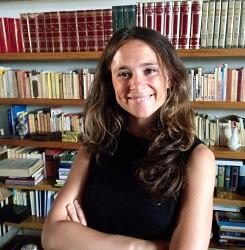



.webp)
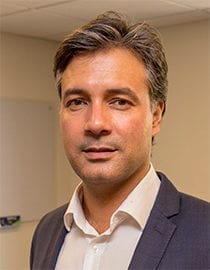




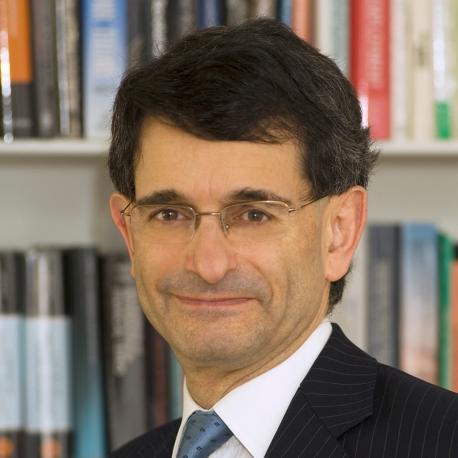
.jpeg)

